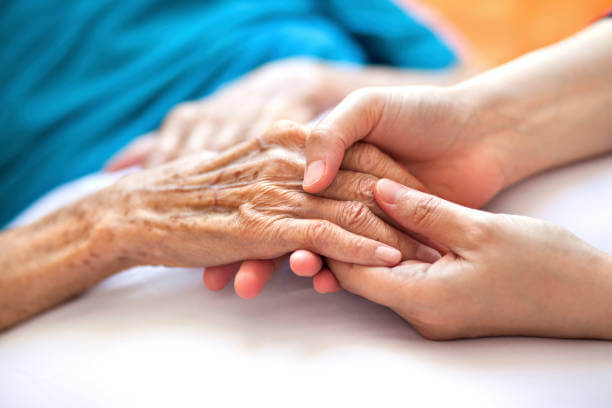The New Year always brings resolutions, and this year a worthy goal might be to eat better. Seniors are especially susceptible to poor nutrition. Cooking for one seems not worth the effort after years of cooking for a family. Perhaps it’s a little harder to go shopping and lug home bags of groceries. Maybe food just doesn’t taste the same or there’s a lack of hunger. Whatever the case may be, many seniors are not getting the proper nutrition they need, and that can wreak havoc on their health.
The DASH diet (Dietary Approaches to Stop Hypertension), promoted by the National Heart, Lung, and Blood Institute, is ranked as the number one diet of 2012 by US News & World Report. This eating plan has been shown to lower blood pressure by lowering sodium intake and increasing the intake of potassium-rich foods.
The average American consumes 2,500 to 5,000 milligrams of sodium per day. The DASH diet research showed that an eating plan containing 2,300 milligrams (mg) of sodium per day lowered blood pressure. An eating plan containing only 1,500 mg of sodium per day even further lowered blood pressure. That’s about ⅔ of a teaspoon of table salt. That includes the sodium found in your food and drink, not just the table salt you add to when cooking or eating.
According to the Institute, the plan
- Is low in saturated fat, cholesterol, and total fat
- Focuses on fruits, vegetables, and fat-free or low-fat milk and milk products
- Is rich in whole grains, fish, poultry, beans, seeds, and nuts
- Contains fewer sweets, added sugars and sugary beverages, and red meats than the typical American diet
Studies show that a good diet can lower your your risk of high blood pressure, strokes, osteoporosis, and heart disease.
What else can you do to ensure that you are getting the most and best nutrition as you age?
- If you miss the added taste salt brings, try spices, herbs, and lemon juice. They’ll add flavor to your food without increasing your sodium.
- Choose whole foods over processed food. That includes whole-grain breads and cereals, and whole fruit over fruit juice.
- Nuts, beans, and legumes are a great source of protein. Limit your red-meat intake.
- Limit the empty calories found in chips, cookies, and alcohol.
- If food tastes strange or different, check with your doctor. Many medications alter the taste of food.
- If you find shopping and carrying groceries to be too much effort, enlist the services of one of the many online grocery providers, such as Netgrocer.com or Peapod. If you prefer to shop for yourself, many stores offer delivery. Just ask.
To learn more about Health Aging Programs and Services, check with your own State Agency on Aging.







